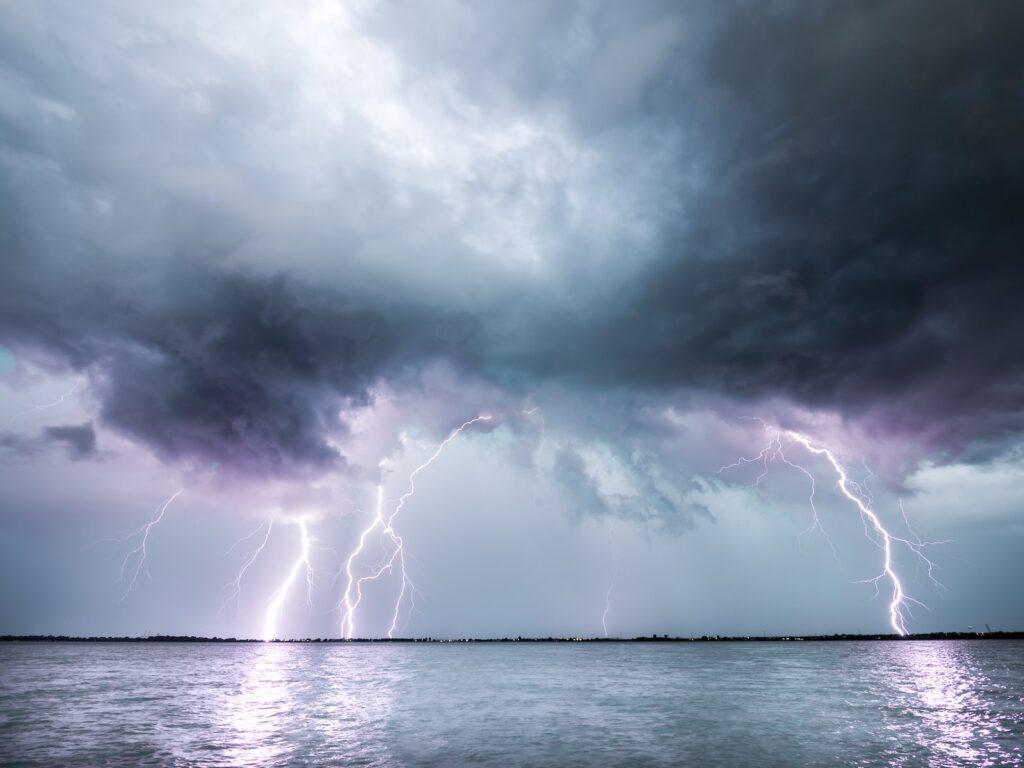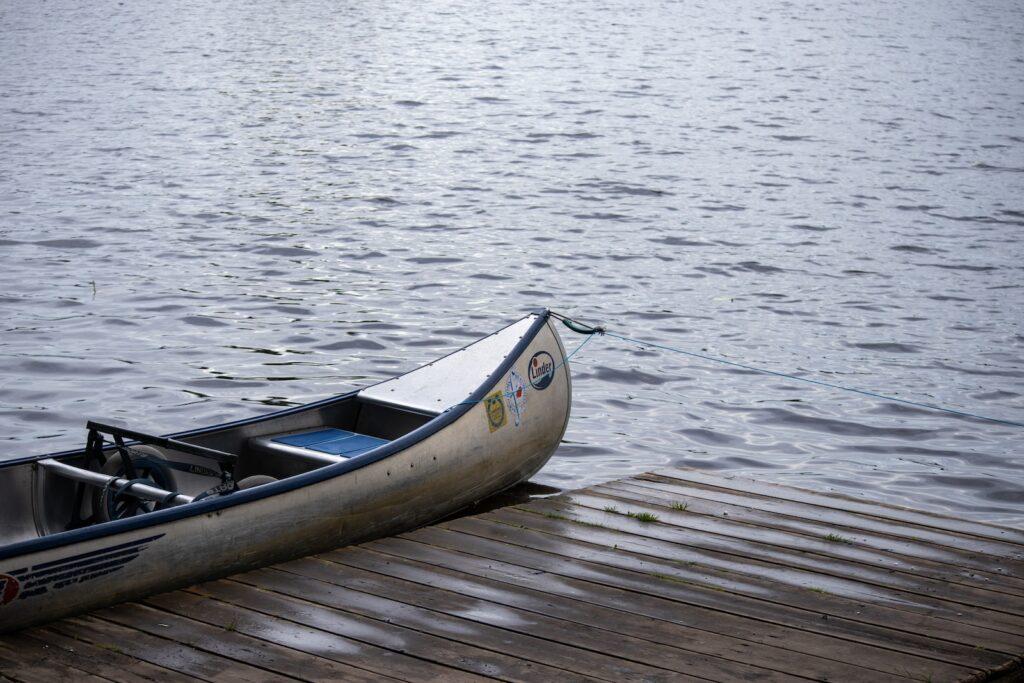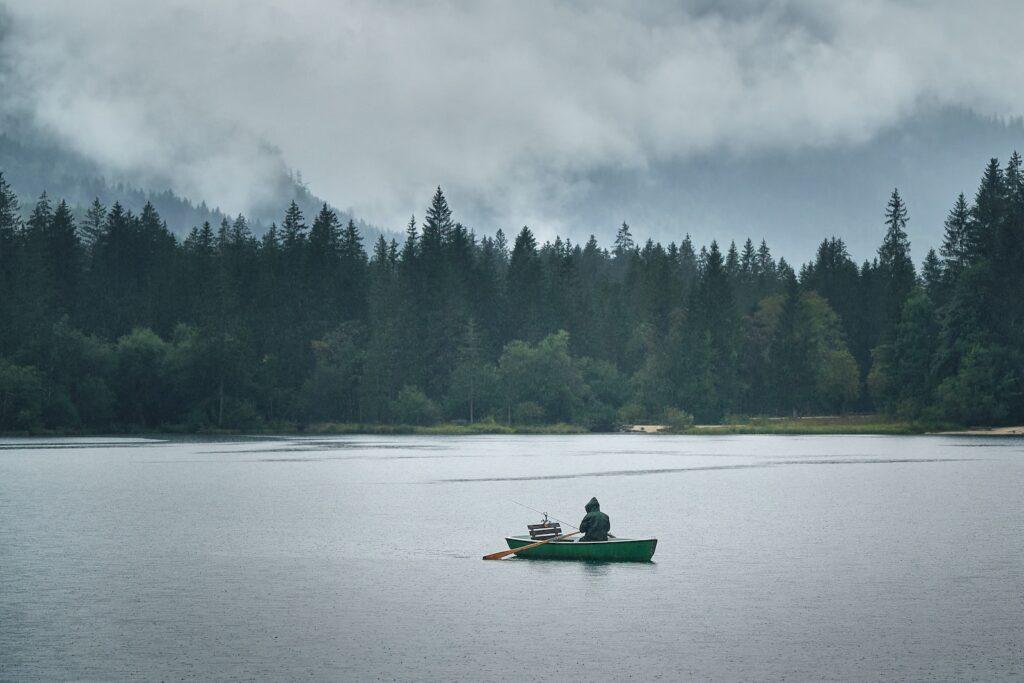When You Are Boating on a Lake and the Weather Turns Bad, What Should You Do First
When you’re boating on a lake and the weather suddenly takes a turn for the worse, what’s the first thing you should do?
Did you know that over 60% of boating accidents are caused by adverse weather conditions?
To keep yourself and your fellow boaters safe, it’s crucial to take immediate action.
Assess the situation, check the weather forecast, secure any loose items on the boat, put on life jackets, and seek shelter or head back to shore.
Remember, staying calm and being prepared are key to navigating any unexpected challenges.
Key Takeaways
- Assess the situation and check the weather forecast before heading out on the boat
- Secure loose items on the boat to prevent them from flying around in rough weather
- Put on life jackets for everyone on the boat to ensure safety and buoyancy
- Seek shelter or head back to shore quickly and decisively in worsening weather, prioritizing safety above all else

Assess the Situation
You should quickly assess the situation and determine the severity of the bad weather. Look around you and observe the dark clouds, strong winds, and any signs of a storm approaching. Feel the temperature dropping and the air becoming damp.
Freedom-loving folks like you understand the importance of being prepared for unexpected challenges, especially when out in the open waters. Take a moment to gather your thoughts and focus on the task at hand. Assessing the situation will allow you to make informed decisions to ensure your safety and freedom to continue enjoying your boating adventure.
Consider the distance to the shore and the time it would take to reach safety. Evaluate the strength and direction of the wind, as it can greatly impact your ability to maneuver the boat. Keep in mind that bad weather conditions can escalate rapidly, so it is crucial to act swiftly. Don’t hesitate to use your instincts and trust your judgment. Remember, freedom means being able to make your own choices and take control of your own destiny.
Once you have assessed the severity of the bad weather, you can determine the necessary actions to take. This may include seeking shelter in a nearby cove or marina, or deciding to head back to the shore altogether. By being proactive and evaluating the situation, you are taking charge of your own safety and ensuring your freedom to navigate the waters responsibly.
Check the Weather Forecast
Next, make sure to check the forecast before heading out on the boat. It’s important to stay aware of the weather conditions to ensure your safety and freedom on the water. Checking the forecast allows you to plan your boating adventure accordingly and make informed decisions.
Before you embark on your journey, take a moment to check the weather forecast. Pay attention to any warnings or advisories that may be issued. If there are signs of severe weather, such as thunderstorms, high winds, or heavy rain, it’s best to postpone your trip. Your freedom on the water depends on your ability to navigate safely and respond to changing conditions.
Remember, freedom means being prepared and responsible. Keep an eye on the forecast throughout your boating trip as weather conditions can change rapidly. If you notice any unexpected changes in the weather, it’s essential to take immediate action. Seek shelter if necessary, or head back to shore if conditions become too dangerous. Your safety should always be your top priority.

Secure Any Loose Items on the Boat
Be sure to secure any loose items on the boat to prevent them from flying around in case of rough weather. When you’re out on the water, enjoying the freedom of the open lake, the last thing you want is for your belongings to go flying off into the abyss.
The wind can pick up unexpectedly, and the waves can become tumultuous, causing your boat to rock and sway. It’s essential to take precautionary measures to keep everything in its place.
Start by stowing away any loose gear or equipment. Make sure your fishing rods, coolers, and chairs are securely fastened or stored in compartments. Tie down any loose ropes or straps, ensuring they are tight and won’t come undone. If you have any loose items on the deck, such as towels or clothing, secure them in a bag or storage container.
By securing your boat’s loose items, you not only prevent them from becoming dangerous projectiles but also maintain a sense of order and freedom on your vessel. You can navigate the rough waters with confidence, knowing that everything is secure and in its rightful place.
Put on Life Jackets
When you’re out on the boat, make sure to put on life jackets to ensure your safety. Life jackets are an essential part of boating safety. They provide buoyancy and keep you afloat if you accidentally fall into the water. Even if you are a strong swimmer, unexpected circumstances can arise, and wearing a life jacket can be a lifesaver.
Putting on a life jacket is a simple yet crucial step before setting sail. Make sure to choose the right size and fit for each person on board. Adjust the straps to ensure a snug and secure fit. Wearing a life jacket shouldn’t restrict your movement or freedom to enjoy the boating experience. They are designed to be comfortable and allow you to move freely while providing the necessary protection.
Life jackets are especially important for children and non-swimmers. They offer peace of mind to parents and guardians, knowing that their loved ones are safe in case of an accident. Remember, accidents can happen at any time, even in calm waters.

Seek Shelter or Head Back to Shore
If the weather suddenly worsens, it’s important to seek shelter or head back to shore to ensure your safety on the water. When you’re out on the lake, enjoying the freedom of being on your boat, the last thing you want is to be caught in a dangerous storm. The key is to act quickly and decisively.
If you see dark clouds rolling in or hear thunder in the distance, don’t hesitate. Seek shelter or head back to shore immediately.
Finding shelter on the water can be a challenge, but it’s not impossible. Look for islands, coves, or marinas where you can anchor your boat and wait out the storm. If there are no suitable options nearby, head back to shore as fast as you can. Don’t take any unnecessary risks by trying to ride out the storm. Your safety should always be your top priority.
Communicate With Others on the Lake
Don’t forget to use your marine radio to communicate with other boaters on the lake. When you’re out on the water, it’s important to stay connected and keep each other informed.
Your marine radio is a powerful tool that allows you to reach out and communicate with fellow boaters, ensuring everyone’s safety and freedom on the lake.
By using your marine radio, you can share important information such as weather updates, potential hazards, or even just friendly greetings. This communication is crucial, especially in situations where the weather turns bad. By keeping in touch with other boaters, you can exchange valuable advice and coordinate your actions to ensure everyone’s well-being.
Through the marine radio, you can also request assistance if needed. Whether it’s a mechanical issue, a medical emergency, or any other unforeseen circumstances, reaching out to fellow boaters can bring swift help and support. Remember, in times of uncertainty, your radio can be a lifeline, connecting you with the freedom-loving community of boaters on the lake.
So, before you set sail, make sure your marine radio is in good working condition. Familiarize yourself with its operation and the proper radio channels to use.
Stay connected, stay informed, and enjoy the freedom of the open water, knowing that you’re part of a tight-knit community that supports and looks out for one another.
Stay Calm and Be Prepared for Emergencies

Remember to stay calm and be prepared for emergencies by having essential safety equipment readily available on your boat.
When you’re out on the lake, freedom is what you seek. But sometimes, things can take an unexpected turn. The weather can change, and you might find yourself in a bad situation. That’s why it’s crucial to be prepared.
Keep a first aid kit on board, stocked with bandages, antiseptic, and any necessary medication. A fire extinguisher should also be within reach, just in case. And don’t forget about life jackets! They’re not just for show. Make sure you have enough for everyone on board, and that they’re easily accessible.
In case of an emergency, a whistle or air horn can be a lifesaver, helping you attract attention when it matters most. And finally, invest in a reliable marine radio or cell phone to call for help if needed.
Being prepared doesn’t mean you expect the worst, but it means you value your freedom enough to take responsibility for your safety. So, enjoy your time on the lake, but remember, freedom comes with the responsibility to be prepared.
Conclusion
In conclusion, when you find yourself boating on a lake and the weather takes a turn for the worse, it is crucial to stay calm and assess the situation. Remember, ‘better safe than sorry.’
Check the weather forecast, secure any loose items, and put on life jackets. Seek shelter or head back to shore, and communicate with others on the lake.
Always be prepared for emergencies and remember, ‘an ounce of prevention is worth a pound of cure.’
Stay safe and enjoy the water responsibly!
